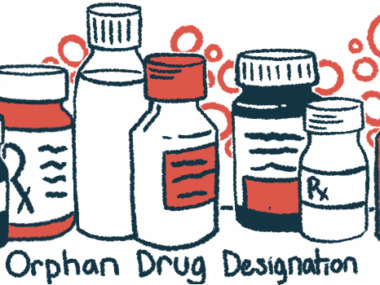Aucatzyl approved in Europe for relapsed/refractory B-ALL
CAR T-cell therapy targets agggressive form of blood cancer
Written by |

The European Commission has approved Autolus Therapeutics’ cell therapy Aucatzyl (obecabtagene autoleucel) as a treatment for B-cell precursor acute lymphoblastic leukemia (B-ALL), an aggressive type of blood cancer.
The approval covers all 27 European Union member states, plus Iceland, Norway, and Liechtenstein. It authorizes Aucatzyl for use in adults ages 26 and older who have B-ALL that is relapsed, meaning it came back after prior treatment, or refractory, meaning it did not respond to prior treatment. Aucatzyl has previously received similar approvals in the U.S. and the U.K.
“We believe Aucatzyl represents an important new treatment option for physicians treating adult [relapsed/refractory] B-ALL patients. With the EU marketing authorization, we are now evaluating market entry opportunities in EU countries,” Christian Itin, PhD, CEO of Autolus, said in a company press release.
Aucatzyl approval based on FELIX clinical trial
B-ALL is a cancer marked by the uncontrolled growth of immature B-cells, a type of immune cell. According to Autolus, up to half of adult B-ALL patients will relapse after initial therapies — and the median overall survival for adults with relapsed/refractory B-ALL given conventional treatment is eight months.
Aucatzyl is an autologous CAR T-cell therapy. This type of treatment involves collecting immune cells called T-cells from a patient, then engineering them in a lab to equip them with a molecular weapon called a chimeric antigen receptor, or CAR. In Aucatzyl, T-cells are specifically equipped with a CAR that targets CD19, a protein expressed by the B-cells that grow uncontrolled in B-ALL. The modified T-cells are then infused back into the body to attack the cancer cells.
The European approval of Aucatzyl was based mainly on data from the Phase 1/2 FELIX (NCT04404660) clinical trial, which tested the therapy in adults with relapsed/refractory B-ALL. Results showed that, of the 94 patients given at least one infusion of Aucatzyl, more than three-quarters had a complete response or complete response with incomplete hematological recovery — essentially meaning their cancer was no longer detectable, even if blood cell counts did not normalize. Median response duration was more than 21 months, and median event-free survival time was nearly a year.
The most common serious safety issues reported in the FELIX study were infections and febrile neutropenia, a condition marked by fever and low counts of certain immune cells. Some patients also experienced serious cases of cytokine release syndrome and immune effector cell-associated neurotoxicity syndrome, both of which are inflammatory disorders associated with CAR T-cell therapies, for which Aucatzyl’s prescribing information carries a boxed warning.




